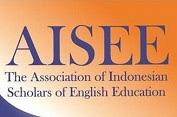LEARNING MOTIVATION MEDIATES THE INFLUENCE OF SELF-EFFICACY AND SPEAKING ANXIETY ON ENGLISH SPEAKING ABILITY
DOI:
https://doi.org/10.36706/jele.v11i2.42Keywords:
English Skills, Learning Motivation, Self Efficacy, Speaking Anxiety, Speaking EnglishAbstract
Speaking English is a challenge that is considered difficult due to a lack of self-efficacy and motivation to learn, which causes anxiety. Therefore, this research tries to find out how self-efficacy influences students and reduces anxiety about speaking English so that it can increase students’ learning motivation in English-speaking skills. It is essential to see the strategies lecturers use to enhance self- efficacy, understand motivation, and reduce anxiety in speaking English. Several studies have examined learning motivation in improving English speaking skills, yet they did not specifically address factors, influences, and strategies related to self-efficacy and speaking anxiety. In this research, there were 136 respondents. They were university students in Jakarta, Indonesia. The data collection method used a questionnaire processed using SEM PLS version 3.2.9. This research found that several variables positively affected motivation to learn English, such as self-efficacy, speaking anxiety, and English-speaking skills. In addition, several variables can directly influence positive values on English-speaking skills, such as self-efficacy and learning motivation, and negative values on English-speaking skills, such as speaking anxiety. Apart from that, there is a direct positive influence on several variables that can influence speaking skills through controlling learning motivation, including self-efficacy and anxiety in speaking English.
References
Asih, K. F., Jaya, A., Theriana, A., & Hermansyah. (2021). An Analysis Of English Speaking Activity For Introvert Learners' Necessity. 5, 69–72.
Barella, Y., Fergina, A., Mustami, M. K., Rahman, U., & Alajaili, H. M. A. (2024). Quantitative Methods in Scientific Research. Jurnal Pendidikan Sosiologi Dan Humaniora, 15(1), 281. https://doi.org/10.26418/j-psh.v15i1.71528
Chauvin, R., Fenouillet, F., & Scott, S. (2020). An investigation of the structure and role of English as a Foreign Language self-efficacy beliefs in the workplace. System, 91, 102251. https://doi.org/10.1016/j.system.2020.102251
Creswell, J. W., & Creswell, J. D. (2018). Research Design Qualitative, Quantitative and Mixed Methods Approaches. In Research Design: Qualitative, Quantitative, and Mixed Methods Approaches.
Hair, J. F., Ringle, C. M., & Sarstedt, M. (2011a). PLS-SEM: Indeed, a silver bullet. Journal of Marketing Theory and Practice, 19(2), 139–152. https://doi.org/10.2753/MTP1069-6679190202
Hair, J. F., Ringle, C. M., & Sarstedt, M. (2011b). PLS-SEM: Indeed, a Silver Bullet. Journal of Marketing Theory and Practice, 19(2), 139–151. https://doi.org/10.2753/MTP1069-6679190202
Henseler, J., Ringle, C. M., & Sarstedt, M. (2015). A new criterion for assessing discriminant validity in variance-based structural equation modelling. Journal of the Academy of Marketing Science, 43(1), 115–135. https://doi.org/10.1007/s11747-014-0403-8
Henseler, J., Ringle, C. M., & Sinkovics, R. R. (2009). The use of partial least squares path modelling in international marketing. Advances in International Marketing, 20(January), 277–319. https://doi.org/10.1108/S1474-7979(2009)0000020014
Hermagustiana, I., Astuti, A. D., & Sucahyo, D. (2021). Do I Speak Anxiously? A Correlation Of Self Efficacy, Foreign Language Learning Anxiety and Speaking Performance. 6(1).
Hoang, T., & Wyatt, M. (2020). Exploring the self-efficacy beliefs of Vietnamese pre-service teachers of English as a foreign language. System, 102422. https://doi.org/10.1016/j.system.2020.102422
Jodai, H., Mahda, A., Zafarghandi, V., & Tous, M. D. (2018). Motivation, Integrativeness, Organizational Influence, Anxiety, and English Achievement : Evidence from a Military University. April. https://doi.org/10.1524/glot.2013.0012
Kiruthiga, E., & Christopher, G. (2022). The Impact of Affective Factors in English Speaking Skills. 12(12), 2478–2485.
Kunah. (2022). The Effect of Grammar Mastery and Learning Motivation on English Speaking Ability.
Kuo, Y., & Kuo, Y. (2024). An exploratory study of pre-service teachers' perceptions of technological pedagogical content knowledge of digital games. 1–18.
Kurniawati, A., Pardjono, P., Mutohhari, F., & Nurhaji, S. (2022). Improving Self-Efficacy and Learning Motivation Through Hybrid Learning Based Google Classroom. 11(3), 510–521.
Lin, C., Wen, X., Wu, Y., Office, A., & Wu, X. (2022). English use anxiety, motivation, self-efficacy, and their predictive effects on Chinese top university students' English achievements. October 1–12. https://doi.org/10.3389/fpsyg.2022.953600
Maming, K., Rahman, A. W., & Idris, R. A. (2023). The Influence of Motivation and Learning Style on Learning Pattern toward Students' Speaking Improvement. 6(1), 32–37.
Maryam, I. S., Febriani, B., & Kurnia, A. D. (2019). EFL Learners' Perceptions Towards their Self-Efficacy in Learning Public Speaking. 3(3), 377–391.
Palupi, R. E. A., Purwanto, B., & Sutriyono. (2022). Analisis Faktor Kecemasan pada Proses Keterampilan Berbicara Peserta Didik Tingkat I pada Mata Kuliah Bahasa Inggris. 10(2).
Pramadanti, R. (2022). Improving English Learning Outcomes with Learning Interests, Learning Motivation, through Learning Activities Learners in the Covid-19 Pandemic. Formosa Journal of Multidisciplinary Research, 1(3), 687–708. https://doi.org/10.55927/fjmr.v1i3.784
Puozzo, I. C., & Audrin, C. (2021). Improving self-efficacy and creative self-efficacy to foster creativity and learning in schools. Thinking Skills and Creativity, 42(July), 100966. https://doi.org/10.1016/j.tsc.2021.100966
Sarstedt, M., Ringle, C. M., & Hair, J. F. (2020). Handbook of Market Research. In Handbook of Market Research (Issue September). https://doi.org/10.1007/978-3-319-05542-8
Takasana, S., & Sengkey, V. G. (2022). The Relationship Between Students' Anxiety in Learning English and Their English Achievement. 1(2012).
Tambunsaribu, G., & Galingging, Y. (2020). Masalah yang dihadapi pelajar bahasa inggris dalam memahami pelajaran bahasa inggris.
Truong, T. N. N., & Wang, C. (2019). Understanding Vietnamese college students' self-efficacy beliefs in learning English as a foreign language. System, 84, 123–132. https://doi.org/10.1016/j.system.2019.06.007
Wene, I. W., & Vantaosen, M. M. (2023). Out-of-Java Students' Perceptions of Self-Efficacy in English-Speaking Skills. 4(2), 458–471. https://doi.org/10.35961/salee.v4i2.839
Wu, X., Yang, H., Junxia, L., & Liu, Z. (2022). English use anxiety, motivation, self-efficacy, and their predictive effects on Chinese top university students' English achievements. October 1–12. https://doi.org/10.3389/fpsyg.2022.953600
Xue, Z., & Ardasheva, Y. (2019). English for Specific Purposes Sources of college EFL learners' self-efficacy in the English public speaking domain. English for Specific Purposes, 53, 47–59. https://doi.org/10.1016/j.esp.2018.09.004
Zaki, M. I., & Lintangsari, A. P. (2023). How Confident Are High Schoolers to Speak English : A Report On Speaking Self-Efficacy Survey. 131–147.
Downloads
Published
Issue
Section
License
Copyright (c) 2024 The Journal of English Literacy Education: The Teaching and Learning of English as A Foreign Language

This work is licensed under a Creative Commons Attribution-ShareAlike 4.0 International License.













